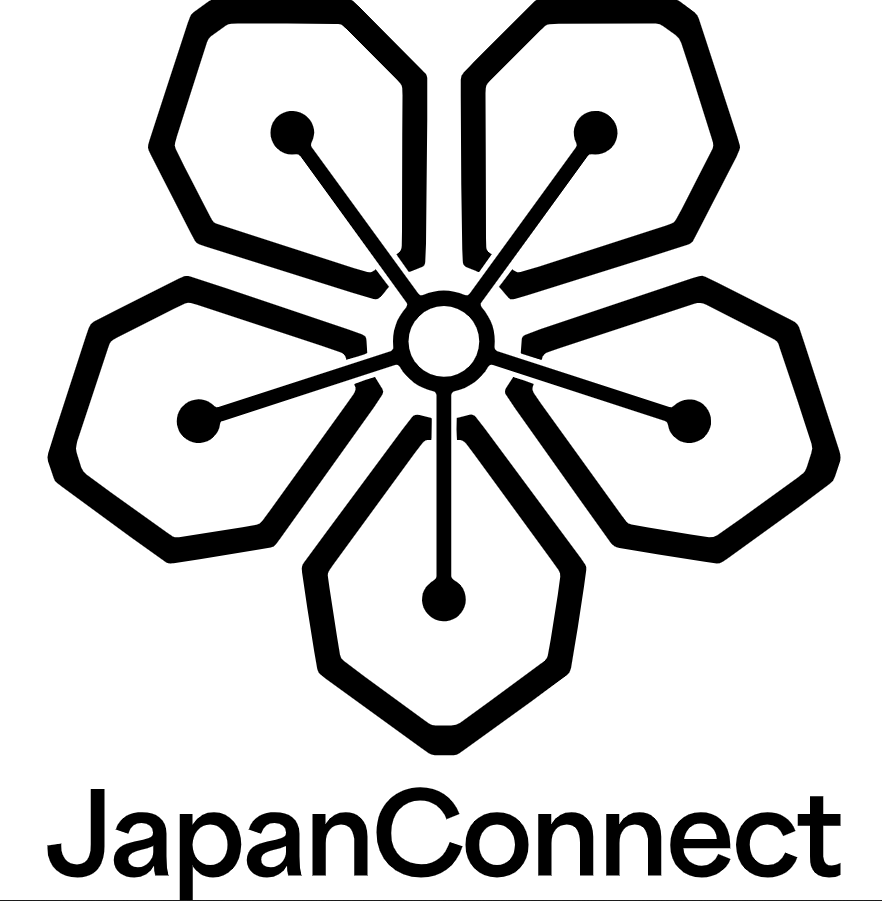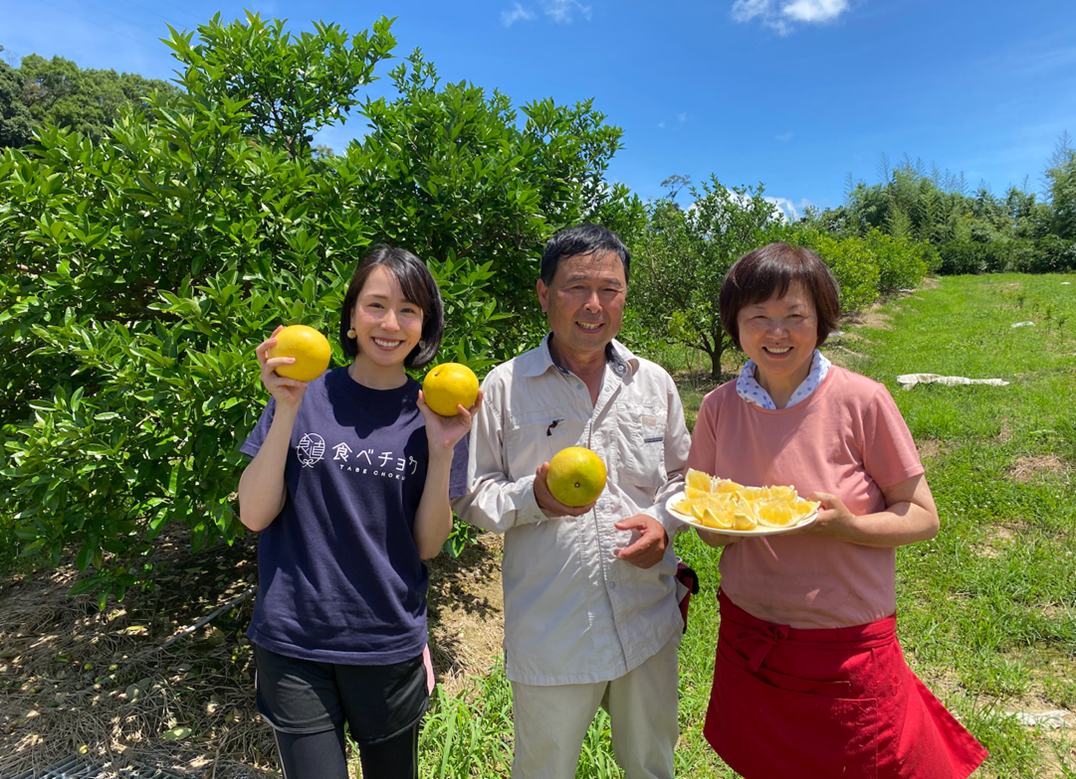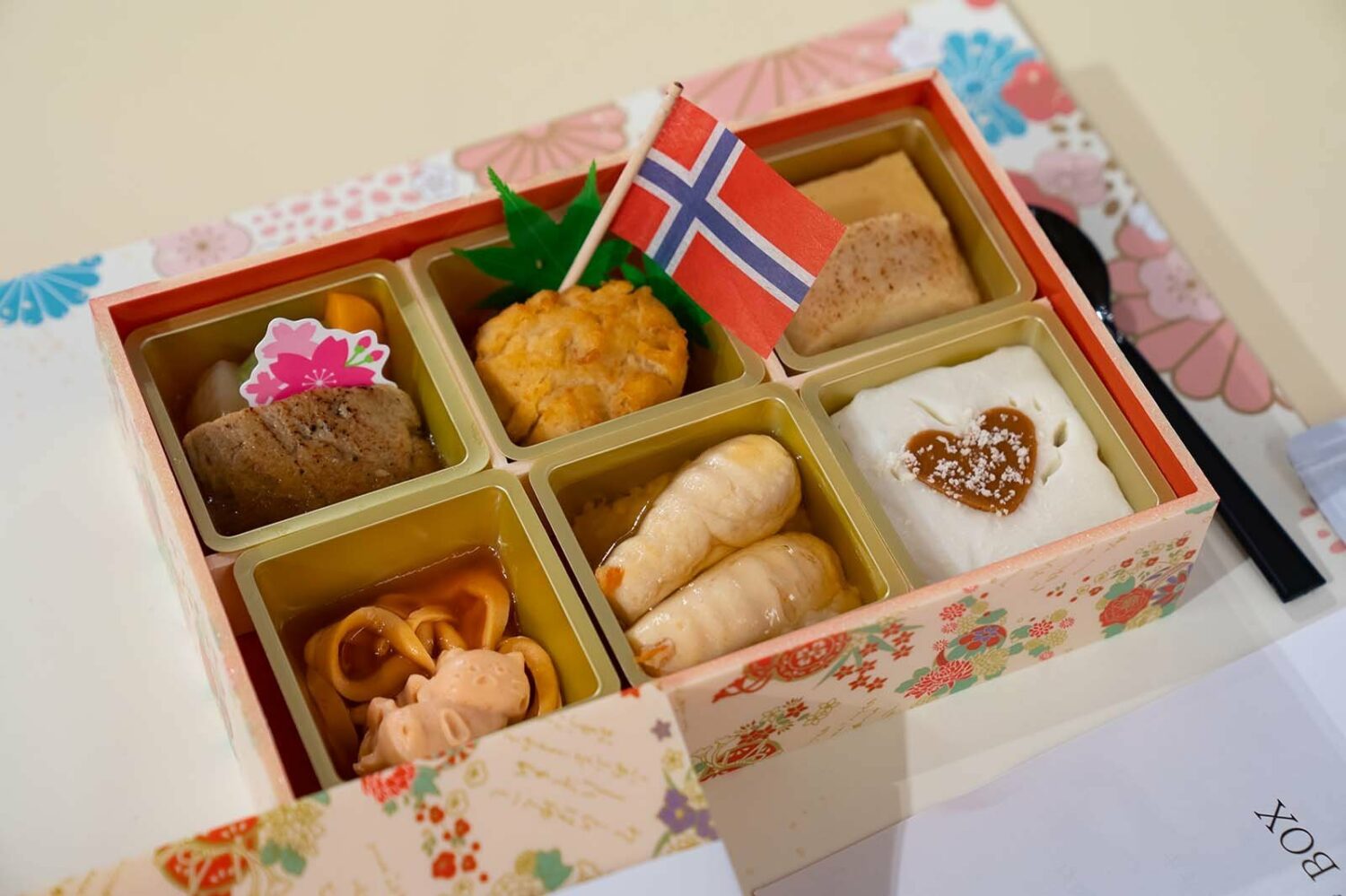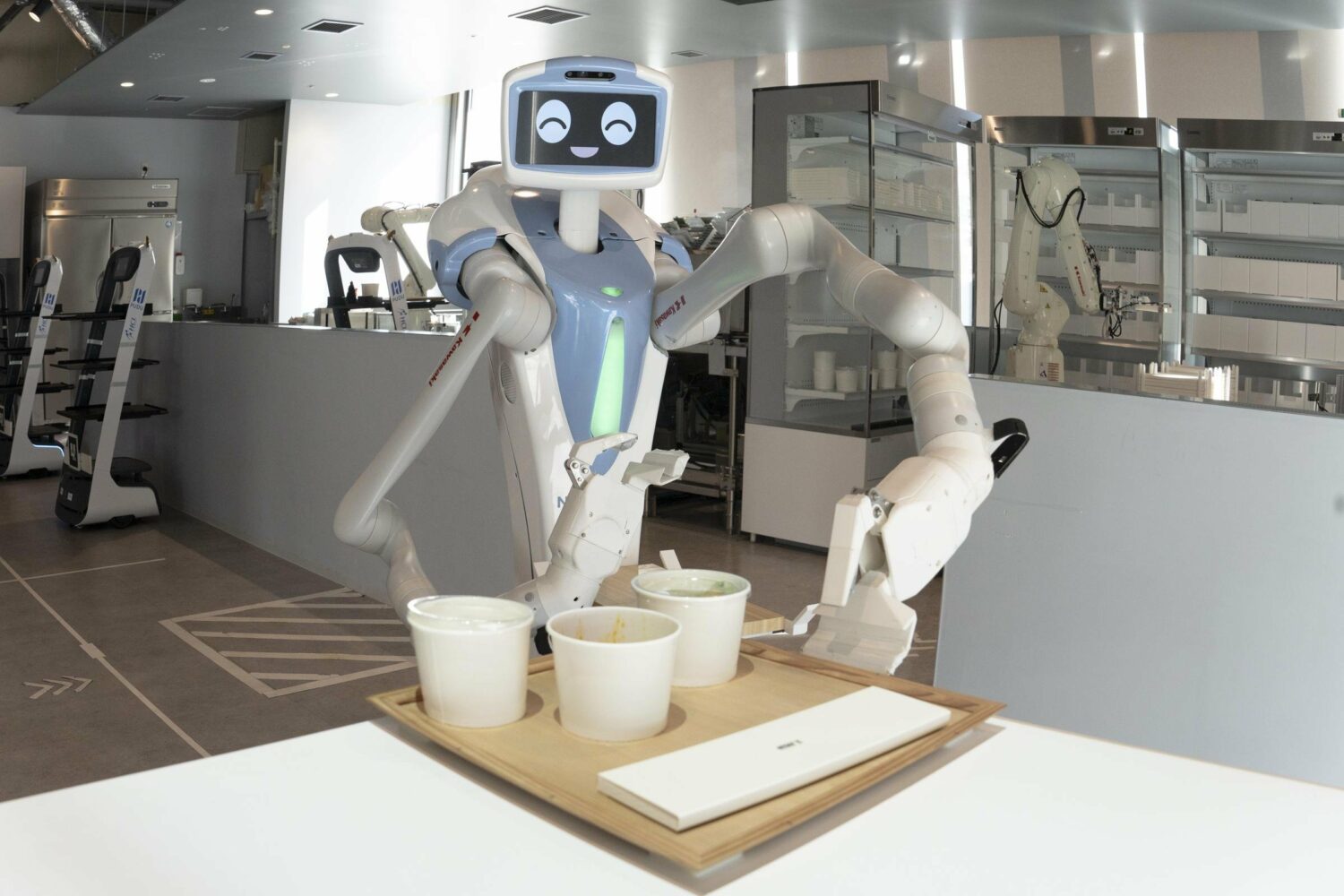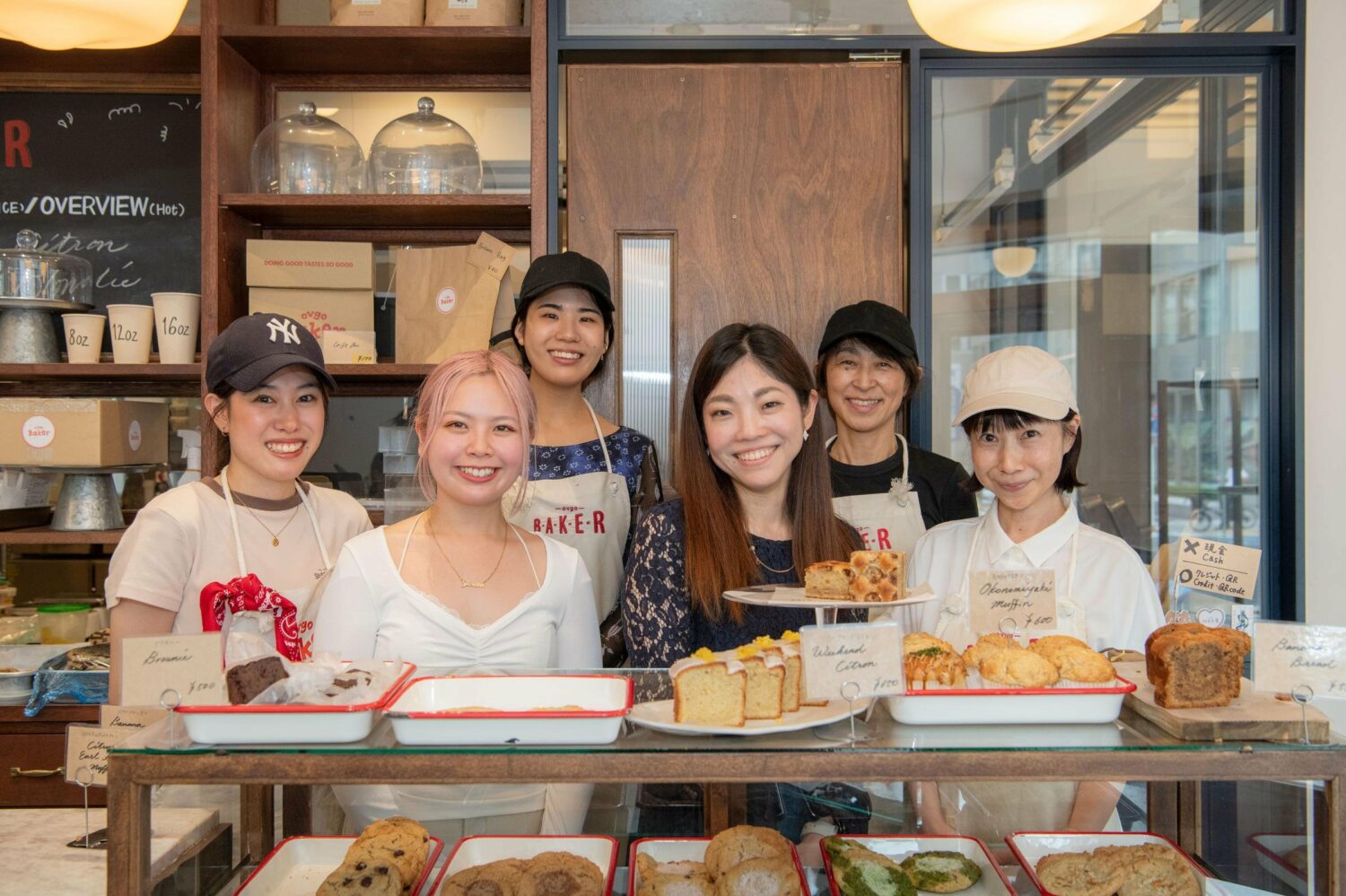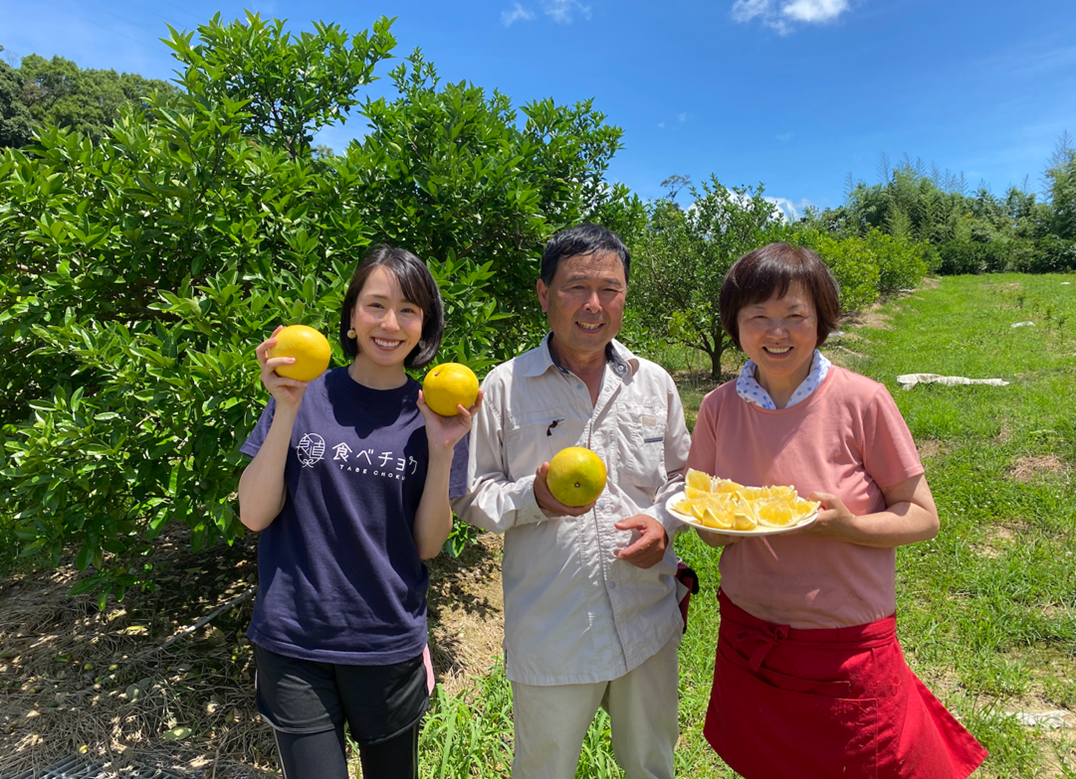Connecting Farmers and Consumers: Akimoto Rina, TABE CHOKU
Founder/CEO Akimoto Rina keenly felt the challenges Japanese farmers face from a young age, as she witnessed firsthand how hard her parents struggled to keep their farm in Kanagawa. Prefecture going, and the pain when it went out of business. This experience led to her starting her company vivid garden Inc., which operates the direct selling platform TABE CHOKU.Akimoto’s idea was to allow producers to determine prices themselves and sell directly to consumers, in the hope that this would allow farmers and other food producers to make a profit equivalent to the love and care they devote to growing and raising their products.
"The COVID-19 pandemic changed how consumers think about eating,” says Akimoto. “Consumers started having respect for producers and delivery service staff—people they hadn't really encountered or thought about before—and became interested in SDGs, as well as how they could contribute to solving social issues in their day-to-day shopping. And I think that that really aligned with TABE CHOKU’s 'producer first' philosophy."
TABE CHOKU allows producers and consumers to communicate directly, enabling them to make a deeper connection. Despite the company only being founded six years ago, the website now has 900,000 users, 9,000 registered producers, and over 60,000 items for sale, including vegetables, fruit, rice, meat, and fish. Many users post glowing reviews about the quality of the products and the kindness of the producers.
Akimoto, who has no farming or agricultural experience, initially started her career in new business development and as a director of web services. She gained the know-how she needed to start her business by participating in Support Funds for Female and Young/Senior Entrepreneurs, the Aoyama Startup Acceleration Center (ASAC), and the Acceleration Program in Tokyo for Women (APT Women).
But Akimoto is not resting on her laurels, and launched an SDGs project for primary industry in January 2023. "It is an initiative that will contribute to SDGs by providing companies with nonstandard food and food from producers who use as little plastic packaging as possible."
Find out more about Akimoto’s future goals at: https://www.tokyoupdates.metro.tokyo.lg.jp/en/post-1190/
Sweet and Sustainable Baked Goods: Lisa Takagi, ovgo Inc.
Lisa Takagi was one of the founding members and now CEO of ovgo Inc., a popular bakery chain with four stores in Tokyo. ovgo is an acronym of "organic, vegan, gluten-free as options." True to their name, the bakeries offer a selection of baked goods produced from plant-based ingredients. However, they strategically do not emphasize that their treats are vegan. "We use only plant-based ingredients, and many people think that vegan cookies are bland and lacking. That's why, from the very start of our business, we have been striving to create an experience where 'the delicious cookie you ate turned out to be vegan,'" explains Takagi.They also strive to promote a sustainable food culture by using organic ingredients and by procuring domestic ingredients that reduce CO2 emissions due to the shorter transportation distance. Part of the greater efforts toward achieving SDGs, Takagi says that ovgo Baker’s mission is to create opportunities for people to think about environmental issues without forcing them, and to reduce environmental impact. The company is committed to solving environmental problems.
In 2022, it became a B Corporation, a global certification for companies that demonstrate high social and environmental performance. It was the 16th company and the first food business to receive this certification in Japan.
"I think the appeal of Tokyo's food culture is its variety and high quality. Maybe it's because the Japanese are so good at concentrating on a specialization, but vegan restaurants in Tokyo are becoming innovative and delicious. I believe Tokyo has been able to deliver world-class quality foods because it is a place where diverse food cultures influence and inspire each other," says Takagi.
Find out more about Takagi and ovgo at: https://www.tokyoupdates.metro.tokyo.lg.jp/en/post-1359/
Tokyo Leading the Charge in Inclusive and Innovative Dining
Going beyond the private sector, the Tokyo Metropolitan Government (TMG), Tokyo Medical and Dental University, and the University of Tokyo collaborated on the development of "inclusive food" so that children with dysphagia (a disorder that makes it difficult to chew and swallow food) can enjoy the same meals as their families.Tohara Haruka, professor of Dysphagia Rehabilitation at Tokyo Medical and Dental University, says that “until recently, most nursing-care foods have targeted the elderly, but dysphagia affects other people as well. Recognizing that, we aimed to develop inclusive food that both children and their parents can enjoy together."
In February 2023, children with dysphagia and their families participated in an inclusive food event held in Tokyo, where they had the chance to taste a lunchbox for children called the Mogumogu Box and three types of sweets. The responses were overwhelmingly positive, with children commenting “I'm glad that I could eat the same food as my siblings," and "Today was fun because I'd never eaten out before."
"With the world's most aging society, we in Japan are in the unique position of being able to develop and spread inclusive food," says Tohara. This new concept born and nurtured in Tokyo may help to build a more inclusive society in which everyone around the world can eat the same food and share the same joy.
Find out more: https://www.tokyoupdates.metro.tokyo.lg.jp/en/post-1006/
And of course, we cannot share a story about Japan without taking a look at the latest in robot technology. Visitors to Japan arriving or departing from Haneda Airport can check out AI_SCAPE, a restaurant run solely by robots located in Haneda Innovation City (HICity),adjacent to the airport.
Customers place an order via a QR code provided at the table, then a robot in the kitchen starts preparing and setting food on a tray. The adorable service robot Nyokkey carries it to the table and delicately places it down before delighted customers, who can choose from a menu of curry, pasta and soup.
Although AI_SCAPE is a restaurant, it also functions as a proof-of-concept (PoC) experiment site where humans and robots coexist and work together to solve social challenges, such as the declining workforce. Goda Itsuki from Kawasaki Heavy Industries, Ltd. (KHI), who operates the restaurant, says, "Our mission as a robot manufacturer is to help solve the challenges faced by businesses struggling with critical labor shortages by developing service robots."
Watch a video of the robots in action: https://www.tokyoupdates.metro.tokyo.lg.jp/en/post-1296/
The stories above are provided by TOKYO UPDATES, an online magazine that features the latest fresh perspectives on Tokyo developments, with contributions from prominent figures, journalists, and independent writers of diverse nationalities, which focus on daily life, leading SDG initiatives, and urban challenges in Japan’s capital. Feel free to feature these stories in your own media, as long as they are properly credited.
https://www.tokyoupdates.metro.tokyo.lg.jp/en
